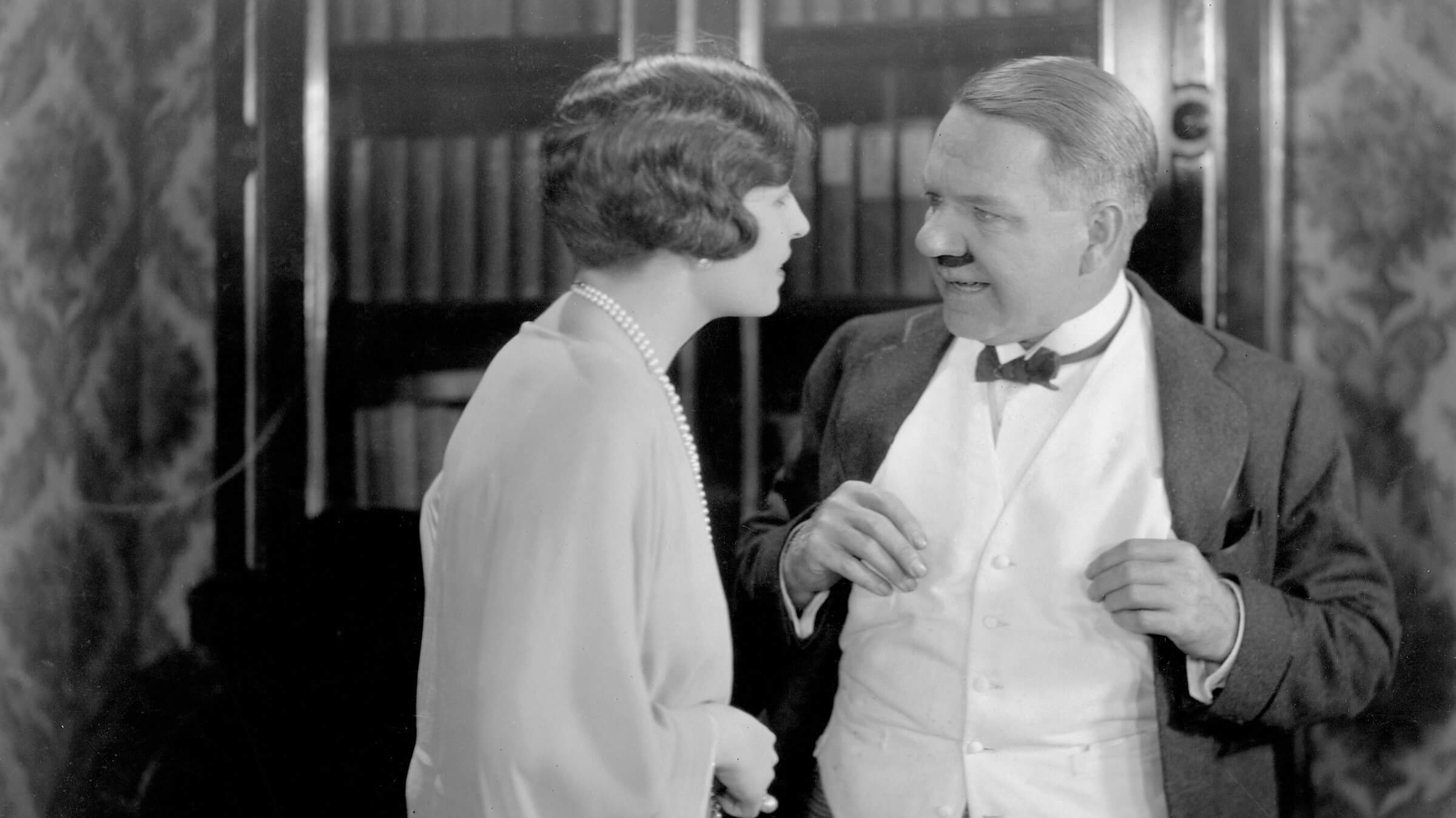In 1941 W.C. Fields made his final feature film, Never Give a Sucker an Even Break. Critic James Agee, in his review for Time magazine, called him “one of the funniest men on earth” and went on to proclaim, “the great comedian can play straight better and more firmly than anyone in the business.” When Fields died five years later, he was memorialized not for any of his talents—vaudevillian, master juggler, pool shark, star of radio and film—but rather as the world’s favorite drunkard.
Born in 1880 to a Cockney immigrant father and a Philadelphia-born mother, William Claude Dukenfield was the eldest of five children. Fields was known for describing his childhood as difficult, flavoring it with Dickensian details. Fights with his father turned into battles. Running away became a commonplace theme. Later, he would even tell people that terrible beatings from neighborhood kids were the reason for his large, deformed nose.
Fields admitted to exaggerations in the story of his childhood, but they contained elements of truth. He taught himself to juggle, using fruit from the family fruit stand. He picked up pool tricks hustling in pool halls. School was boring, and he did run away from home but more to avoid teachers than abusive parents.
In 1897, with little money, he put together a juggling act, “The Tramp Juggler.” Soon after, he found work in Atlantic City’s burlesque and vaudeville halls. To earn extra money, he became a “drowner.” Creating a distraction by pretending to drown in the nearby ocean, he caused a crowd to form on the boardwalk. Rescued, he was carried into the theater and the crowd followed in concern. The theater then offered discount tickets in celebration, while Fields slipped out of the lobby, later emerging on stage in disguise.
By 1900, he found some success with his tramp act in San Francisco and married fellow performer Harriet Hughes. After playing on the Orpheum Circuit, the couple was offered a European tour. Touring the world for the next five years, they become a well-known vaudeville team. Hattie became pregnant and found she preferred domestic life. They quickly separated, and Fields returned to performing solo. While he supported his wife and child financially, he would not be part of their lives.
Fields found it lonely on the road without Hattie. He installed a bar in his wardrobe trunk and invited guests up to his dressing room after a show. Feeling that alcohol would impede his ability to perform, he never drank. Eventually, however, he developed a taste for alcohol and was told he performed better after drinking. In 1923, D.W. Griffith saw Fields in Poppy and thought the Broadway musical an excellent vehicle for actress Carole Dempster. Fields was brought on at the last moment, after the role of McGargle was trimmed down, giving Dempster, a Griffith favorite, more room to shine. The plan backfired when Fields showed up and stormed Dempster’s dressing room, infuriated that many of his good scenes had been cut. The production came to a standstill. Rather than scrap the project, Paramount executives reluctantly restored Fields’s part.
William LeBaron, a producer at Paramount, thought Fields hilarious and quickly signed him. Pairing him with director Gregory La Cava for So’s Your Old Man, LeBaron hoped that Fields would appreciate La Cava’s dark sense of humor and be more malleable on set. On the first day of shooting, LeBaron asked La Cava’s opinion of Fields. “He’s a terribly mean man,” replied the director. Fields’s opinion of La Cava? “He’s a Dago son of a bitch.”
Two weeks later, their opinions were tempered by respect for each other’s talents. “I hate his guts,” La Cava reported to LeBaron, “but he’s the greatest comedian that ever lived.” Fields responded, “I can’t stand the bastard, but he’s the best director in the business.” A strong friendship was formed. The combination worked so well that La Cava would later direct Fields’s scenes in films by other directors.
During this time, Fields began to use his public persona to create publicity, blurring the line between his public and private self. To the world, he was that cantankerous man with a penchant for drinking who distrusted doctors and bankers and was repulsed by children. He created a publicity “feud” between himself and Baby LeRoy, a child actor who played Fields’s nemesis in numerous films. It was rumored that Fields once spiked LeRoy’s orange juice to shut him up on set. In truth, Fields understood the importance of LeRoy as his foil and campaigned to have his scenes extended. He later assisted LeRoy’s family with money during hard times.
In 1937 Fields found his greatest success in radio. What began as a stint on a popular show with comedian Edgar Bergen and his wooden dummy Charlie McCarthy became a full-time routine. McCarthy would make fun of Fields’s drinking and call him a “mean old drunk.” Insults between Fields and McCarthy became legendary, and Fields’s drawl was imitated across the country. During these shows, Fields’s inebriated character was given full play. The name W.C. Fields became synonymous with “Drunk” and, for the sake of his career, Fields embraced it.
Trying to live up to his character was taking a terrible toll on Fields. He gained weight, and his skin betrayed the signs of liver failure. After a close call with pneumonia, he attempted to quit drinking but this was short lived. Professionally, he managed to sign a new contract and now had full writing control on his films.
In Never Give a Sucker an Even Break, his final starring role, Fields played a character called “The Great Man.” He had intended the film to be an introspective, esoteric tale with nightmarish elements that would show the struggle of the performer with his public image. However, illness and delirium tremens had set in, and he could no longer fight the producers the way he had before. He was unable to achieve his vision of the film. It was re-cut to match the public’s expectations for a Fields picture.
Three decades after his death, Louise Brooks wrote an essay for Sight and Sound magazine, recalling the Fields she had met back when she danced in the Ziegfeld Follies. In “The Other Face of W.C. Fields,” she said Fields’s talent could only be fully appreciated on the stage, where his character was rooted in a make-believe world and the audience could see all of him, uncut by setups and camera angles. “Bill performed as if he were standing whole before an audience that could appreciate every detail of his costume and follow the dainty disposition of his hands and feet. Every time the camera drew closer, it cut off another piece of him and deprived him of some comic effect.”
Carlotta Monti, his mistress of 13 years, wrote about Fields in 1971: “They have said he was crotchety, castigating, had a jaundiced eye, was larcenous, suspicious, shifty, erratic, frugal, and mercenary. I can only confirm these accusations. But he was also loveable, kind, sweet, generous, thoughtful, and gentlemanly.” The man who had a reputation for detesting children included a provision in his will, Monti noted, “leaving the bulk of his estate to orphanages.”
Presented at SFSFF 2009 with live music by Philip Carli

